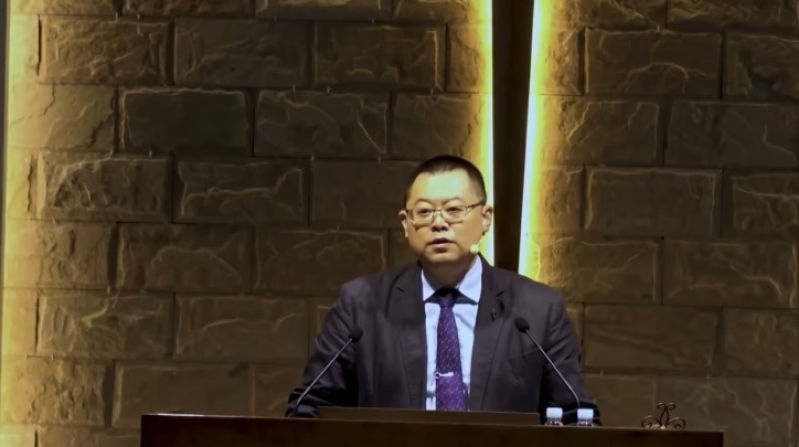
Anticipating his arrest, the pastor of the persecuted Early Rain Covenant Church penned a list of 14 powerful directives his church should and should not do in the face of government oppression.
Pastor Wang Yi wrote the list before he and around 160 others from his church were imprisoned by Chinese authorities for their faith in mid-December. During the raid, police also confiscated Bibles, shuttered a school and seminary run by the well-known church. Currently, Yi is being held on charges of "inciting subversion," punishable in serious cases by at least five years in prison.
The pastor began the list, originally posted on his blog in October, by announcing his determination to "resist by peaceful means when the government oversteps the boundary of the secular power God has given - attacking and usurping the spiritual affairs that belong to God and his church."
Wang then highlighted a list of "positions and resolutions" for his congregants to adopt should he be arrested.
"I pray that the death of Christ will always be on me so that the power of Christ's resurrection will cover me at all times," he said. "I know fully and acknowledge that I am an unworthy sinner, but I hope that Christ's sovereignty and grace will not forsake me in persecution."
First, Wang charged that Early Rain will refuse to stop gathering despite government orders: "God's sovereignty is higher than any secular authority and the church's mission and the Bible's teaching on not neglecting to gather together is higher than any secular law," he explained.
The pastor said he will continue to demonstrate non-violent resistance in the face of oppression; will not accept or obey the government agency's decision to ban, seal up, and dissolve the church and its gatherings; will not sign any document of administrative decision sent by the Religious Affairs Bureau; will not answer any questions the police ask regarding his faith and the church, and will refuse to admit to any crimes imposed against him on matters of faith and church.
He also said he would refuse to accept a government-designated defense lawyer or appear on TV. Additionally, Wang said he would disobey ideological reform, refuse to "pay one penny of penalty, fine or bail," and would refuse to accept the additional penalty of deprivation of political rights.
"I will do my utmost to preach the gospel, shepherd or plant churches, write and publish articles, and live out the Great Commission given by the Lord Jesus Christ, until I lose my freedom again," he declared.
However, Wang said he will request the freedom to obtain and read the Bible during his imprisonment, will continue sharing the Gospel, and will demand a public trial.
He explained: "Because a court that has a secret trial is no longer one that the Bible commands me to obey, I will refuse to appear in court and to submit to any command of the judge; I will respond with no speech and no defense to all unlawful trials of the church and faith except for when I share the gospel."
The persecuted pastor concluded by asking God to give his family and his church peace amid his imprisonment and give him "peaceful resistance, positive perseverance and joyful disobedience in all matters of conscience, faith and the church."
As part of the growing crackdown on religion, the Chinese government has banned online sales of the Bible, burned crosses, demolished churches and forced at least a half-dozen places of worship to close. Despite such persecution, it's estimated that unofficial churches in China serve as many as 30 million people.
Wang, in a prewritten message released after his detention, spoke about the importance of disobedience.
"The Communist regime's persecution of the church is an extremely vicious crime," he wrote. "As a pastor of the Christian church, I must strictly and publicly condemn such crimes."






